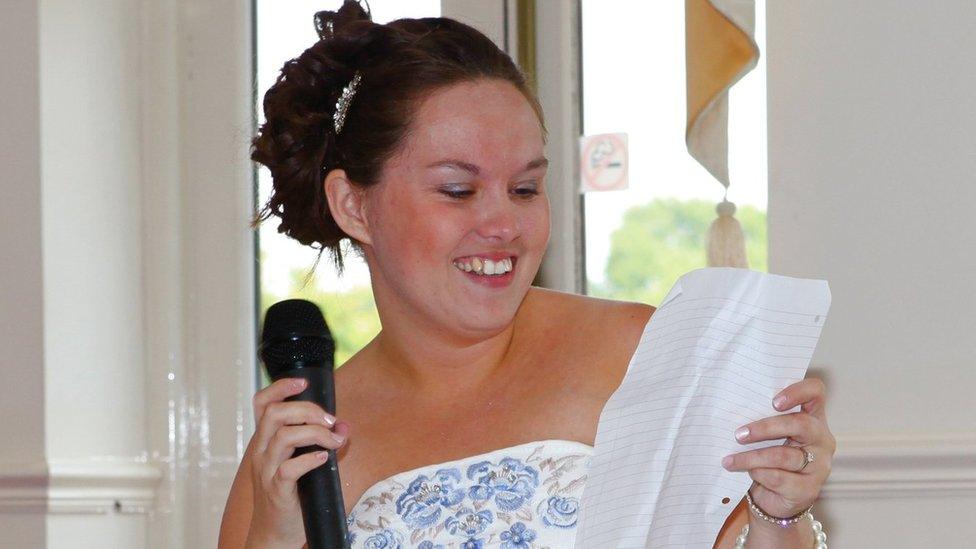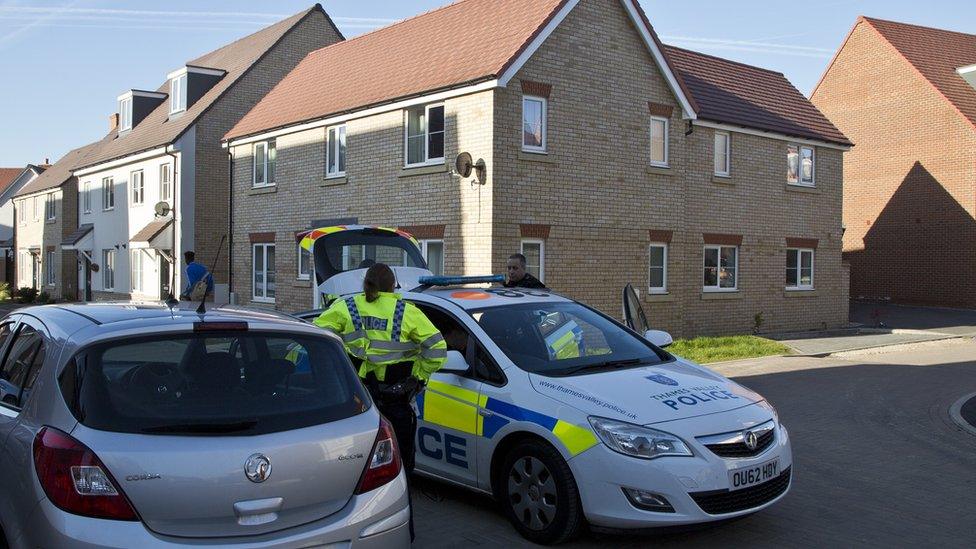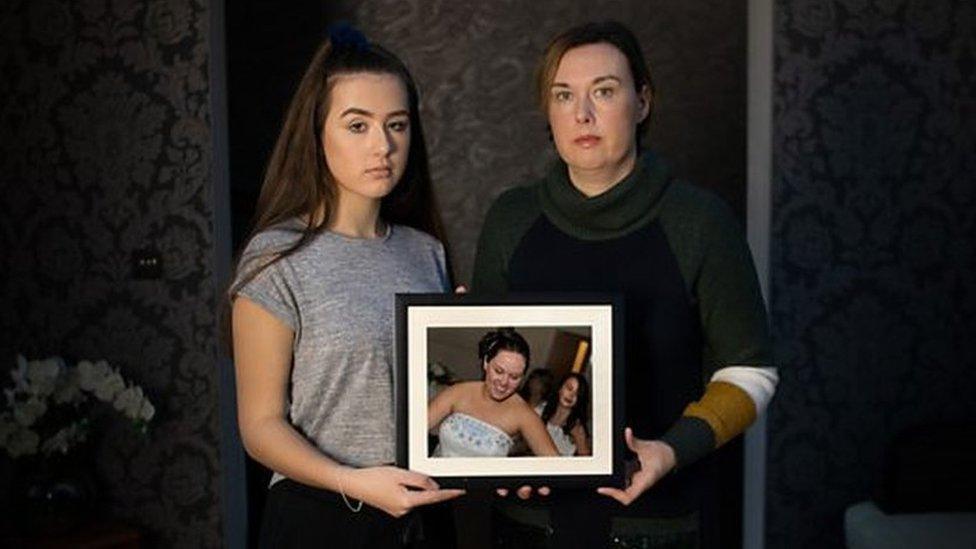Natalie Hemming murder: Authorities 'missed opportunities'
- Published

Natalie Hemming was beaten to death by her partner, Paul Hemming
Authorities "missed opportunities" to share information about a woman's abusive partner before he murdered her, a review has found.
Natalie Hemming, 31, was beaten to death by Paul Hemming at their home in Milton Keynes in May 2016.
A domestic homicide review found she had told professionals information that suggested abuse in the relationship.
It concluded there was a failure to "explore, triangulate and corroborate information".
Ms Hemming's sister Joanne Beverley said communication between agencies must improve.
'Perpetrators are clever'
Hemming was convicted in November 2016 of murdering the mother of three and jailed for life.
The Milton Keynes Community Safety Partnership's review looked at councils, health services, police, and the education system in Hertfordshire - where Ms Hemming had lived for most of her life - and Milton Keynes and Yorkshire, where she had lived for various periods.
It said that "despite only three calls to the police concerning domestic abuse over a nine-year period" it was evident she had "disclosed information to professionals that suggested her and the perpetrator's relationship was abusive".
She had spoken to an independent domestic violence advisor in 2013 and said Hemming had hit the back of her head, thrown a phone at her, spat at her and said, "I just want to kill you".
A number of checks were made afterwards but the advisor later reported Ms Hemming was "no longer engaging" and the case was passed to the Targeted Advice Service, which closed it.
"The TAS appeared to completely disregard the history provided by the IDVA. This information showed a pattern of escalating behaviour. It was evident that the perpetrator was physically abusive, financially controlling and emotionally controlling," the report said.
"The TAS appeared to minimise the abuse that [she] was suffering by suggesting she should simply talk to the perpetrator when he was calm. Inevitably such an inappropriate response may have made [her] more hesitant to report domestic abuse on future occasions, or even minimise the abuse herself."

Ms Hemming's "children were her world", her sister said
Ms Hemming's family also raised concerns about how schools documented the frequency of her children changing schools and the report recommended a system be put in place to identify such pupils, as "there remain concerns about the accountability of the multi-agency risk assessment conference and the record keeping of schools within Hertfordshire".
Ms Beverly said: "Communication is key, we live in this age of technology and yet somewhere along the line we still don't seem to be getting that bit right in terms of sharing information between agencies.
"Perpetrators are so clever at what they do, they do make it incredibly difficult for agencies to see what is actually happening."

She was murdered at their home in Milton Keynes
The report said that when Ms Hemming disengaged from agencies this was accepted too easily but that "practice has changed over the years" and agencies "work more closely together".
However, it found "there was no evidence of liaison with other agencies or even any triangulation of the information known to children's social care".
"Professionals had the opportunity to be more enquiring about [Ms Hemming's] circumstances and they missed opportunities to explore, triangulate and corroborate information," it added.
- Published6 February 2019

- Published15 November 2018

- Published1 June 2017

- Published4 November 2016

- Published25 May 2016
